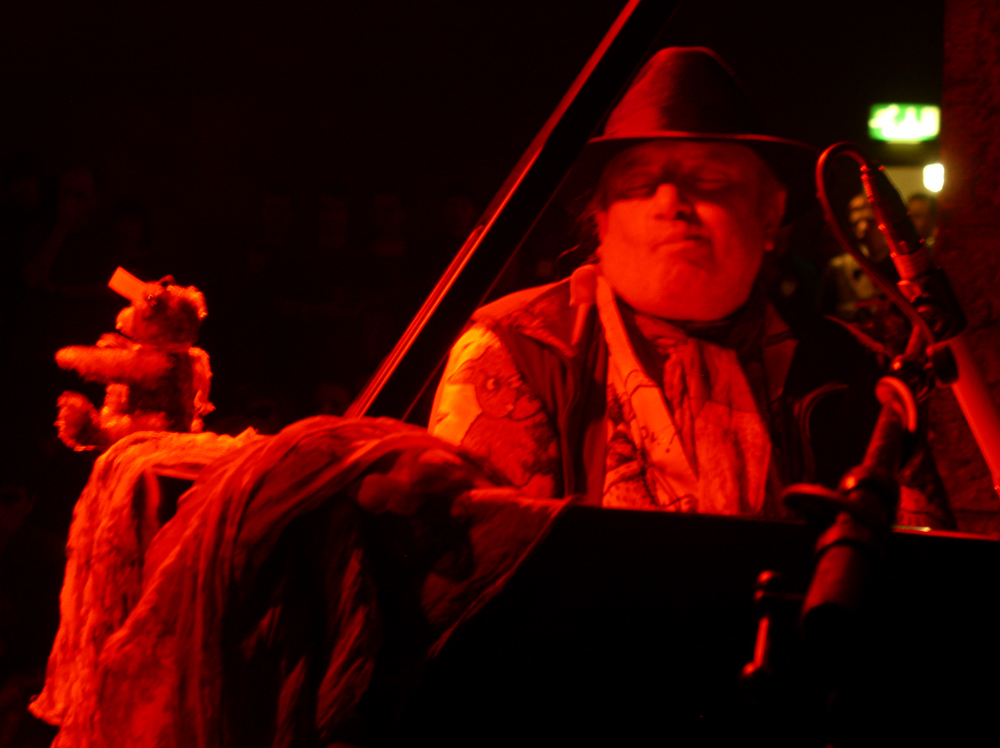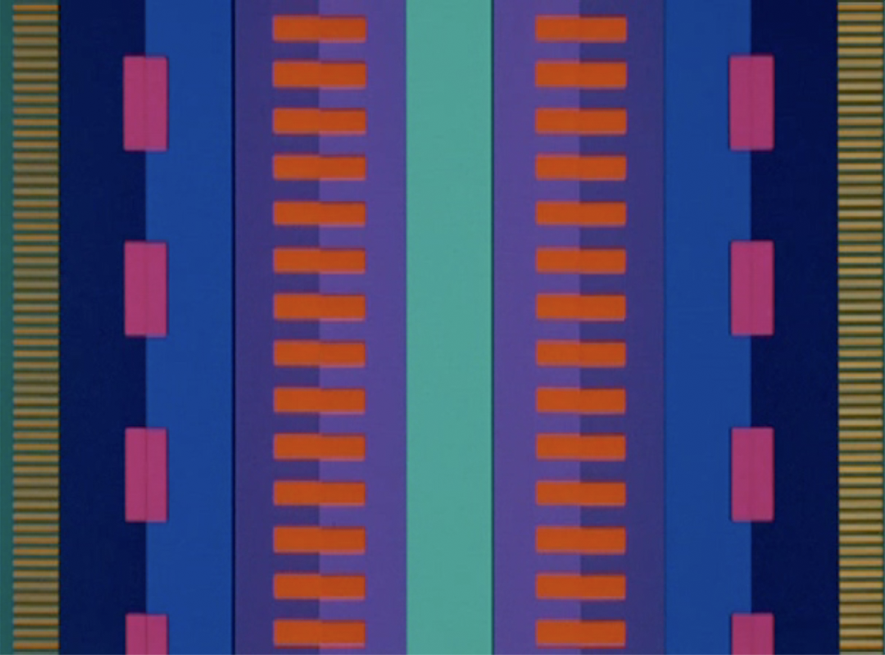
Unstable, fragile but daring together
Emma Hedditch Howard Slater Laurie Pitt Liam Casey Mattin
Instead of the one-way monologue of normal performance, what would be the result of an actual collective dialogue? Where would it go?
Arika have been creating events since 2001. The Archive is space to share the documentation of our work, over 600 events from the past 20 years. Browse the archive by event, artists and collections, explore using theme pairs, or use the index for a comprehensive overview.

Instead of the one-way monologue of normal performance, what would be the result of an actual collective dialogue? Where would it go?

Personal Spaces: inversion of a territorial bell, confusing the realms between rehearsal and performance, public and private space.

How do we sense entanglement? Can the knotting of ropes according to a poem’s rhythm make the social pulse of language matter?

Duo performance by two great French musique concrète improvisers using feedback, contact mics, tape, an old Revox tape machine, a vintage synth…

Performance of a Sudoko based graphic score giving rise to a process of self cancellation.

Quasi-theatrical multiple-projector pieces play with the relationship between performers, art and audiences.
Dundee. Progressive rhythmical guitar squall vs. post-highland discorporate dusk-jockey.

A Festival supporting the struggle for Sex Workers’ Rights: share knowledge, discuss, dance and strategise!

Originally billed as a duo of Ingar Zach and Derek Bailey, John Butcher stood in for Bailey at the last minute.

An extravagant debauch of plush toys and ritual. Palestine performed a version of Strumming Music, a trance inducing investigation into overtone systems achievable on a Bosendorfer Imperial Piano.

The first of two short film programmes featuring works that blur the boundaries between music and film from artists who cross and redefine those long held divisions. This programme focuses on the forebearers of filmic and musical innovation over the last 70 years.

What is happening when systems of repression try to grasp communities’ ways of being, living or surviving, applying laws of sexuality, gender or race to cast them as criminal?